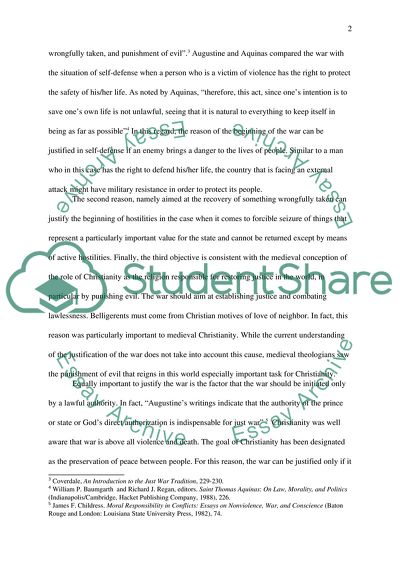Cite this document
(The Just War Theory in Christianity Essay Example | Topics and Well Written Essays - 1750 words, n.d.)
The Just War Theory in Christianity Essay Example | Topics and Well Written Essays - 1750 words. https://studentshare.org/religion-and-theology/1850920-just-war
The Just War Theory in Christianity Essay Example | Topics and Well Written Essays - 1750 words. https://studentshare.org/religion-and-theology/1850920-just-war
(The Just War Theory in Christianity Essay Example | Topics and Well Written Essays - 1750 Words)
The Just War Theory in Christianity Essay Example | Topics and Well Written Essays - 1750 Words. https://studentshare.org/religion-and-theology/1850920-just-war.
The Just War Theory in Christianity Essay Example | Topics and Well Written Essays - 1750 Words. https://studentshare.org/religion-and-theology/1850920-just-war.
“The Just War Theory in Christianity Essay Example | Topics and Well Written Essays - 1750 Words”. https://studentshare.org/religion-and-theology/1850920-just-war.


